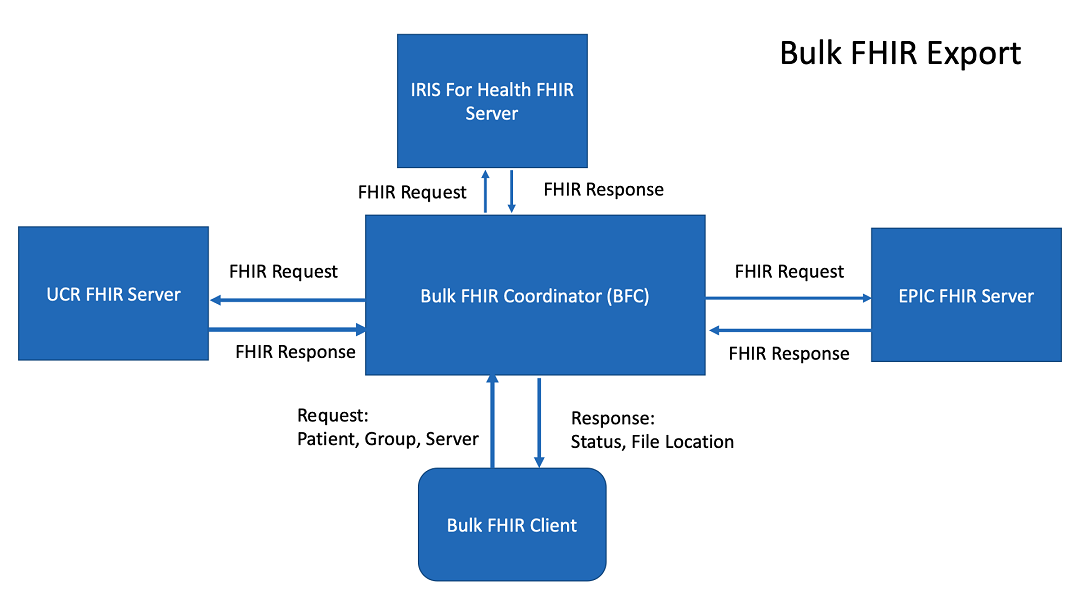New in InterSystems IRIS for Health 2023.1
This page describes the new and enhanced features in the 2023.1 release of InterSystems IRIS for Health™, which is an extended maintenance (EM) release. Some of these features were also available in the continuous delivery (CD) releases since 2022.1, the previous EM release.
For a more exhaustive list of the changes included in this release, refer to the Upgrade ChecklistOpens in a new tab.
Release Information for 2023.1
The current maintenance release is 2023.1.6. The posting for 2023.1.6 is build 2023.1.6.810.1.
Enhancing Analytics and AI
Columnar Storage
Columnar Storage is a new storage option for InterSystems IRIS SQL tables. Columnar Storage offers analytical queries which are an order of magnitude faster than traditional row queries on InterSystems IRIS. Such queries typically aggregate data over very large tables and typically involve filters and groupings on one or more columns. By laying out the table data by column rather than by row (which works best for transactions on a handful of rows at a time), we can dramatically reduce the amount of I/O required to run such queries and exploit modern chipset-level optimizations called SIMD (Single Instruction Multiple Data) to further improve performance as part of vectorized query processing.
This capability first became available in InterSystems IRIS for Health 2022.2 as an experimental feature. It is now fully supported for production use in 2023.1, with the exception of using columnar storage for sharded tables. Support for this combination will be delivered in a future release. Customers who used the experimental version of this capability should reload all columnar table data after upgrading to 2023.1.
For more details, see Choose an SQL Table Storage Layout.
Interoperability and FHIR
Bulk FHIR Support
The InterSystems HL7® FHIR® server now supports exporting Bulk FHIR, a capability which is rapidly gaining favor in the market. There are many use cases for Bulk FHIR export; for interested readers, Dan Gottlieb provides an explanation in this YouTube videoOpens in a new tab on the HL7 FHIR DevDays Youtube channel. The standards for Bulk FHIR export can be found on the HL7 website (https://hl7.org/fhir/uv/bulkdata/Opens in a new tab).
Administrators can use Bulk FHIR export to backup and migrate servers. Data analysts can use Bulk FHIR to extract population sets for research and health management. With Bulk FHIR export, payers can transmit massive data sets to providers, and vice versa.
InterSystems IRIS for Health 2023.1 provides both a Bulk FHIR export server and client. The server makes use of a new component, the Bulk FHIR Coordinator (BFC). The BFC performs several functions, including:
-
Receiving and processing FHIR Bulk data $export kick-off requests
-
Executing FHIR queries against a target FHIR endpoint and storing results
-
Processing query results into Bulk FHIR-appropriate NDJSON payload files
-
Responding to requests to download completed export files
-
Supporting the following $export operations
-
Patient /$export
-
Group/[id]/$export
-
/$export
-
-
Supporting the SMART Backend Services Authorization Model
The following diagram shows how the BFC can interact with different FHIR servers.

We hope to improve the ease of using this feature in coming releases, and we would appreciate your feedback. Please send all feedback to bulkfhir@intersystems.com.
Enhancing Speed, Scale and Security
Foreign Tables
This release introduces a new capability for leveraging external data in InterSystems IRIS. To any SQL queries you write in InterSystems IRIS, Foreign Tables present themselves as regular InterSystems IRIS tables. However, their data is not physically stored within the InterSystems IRIS server. They may be in remote files, third-party databases (on-prem or DBaaS), or a separate InterSystems IRIS server to which an ECP connection would not be practical. In other words, the data in these tables is not managed by the InterSystems IRIS instance, but it is projected to the InterSystems IRIS instance.
InterSystems IRIS 2023.1 includes support for projecting data from CSV files and JDBC data sources. The JDBC option leverages existing SQL Gateway infrastructure for managing connection details and credentials, and the syntax and capabilities for using file sources is fully aligned with the existing LOAD DATA command.
Foreign Tables are available in InterSystems IRIS 2023.1 as an Experimental Feature. This means they are not supported for production environments. However, the feature is well-tested and InterSystems believes it can add significant value to customers.
InterSystems is looking for feedback on this new capability based on customers’ use in real-world environments. Please reach out on the Developer Community or contact the Worldwide Response Center (WRC) if you would like to share your experiences or you have questions.
For more details, see Foreign Tables.
Memory Settings
New installations of InterSystems IRIS now use smarter defaults for shared memory and lock table size settings. The new defaults apply best practice configurations based on the configured global buffer size (which, in turn, considers available system memory if not set by the user) and work well for most workloads. As before, users may still override these defaults with specific values. Existing settings are not affected.
Platform Scalability
This release includes a number of scalability enhancements that enable large production deployments to meet highly demanding workloads. These enhancements include the asynchronous reading of journal files during de-journaling and changes to the infrastructure of the Enterprise Cache Protocol (ECP) which optimize resource usage and limit contention under very high load.
Platform Updates
This release adds support for the following new server platforms:
-
macOS 13 (Ventura)